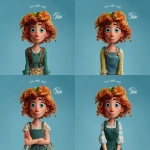Explore the Best AI Image Gallery
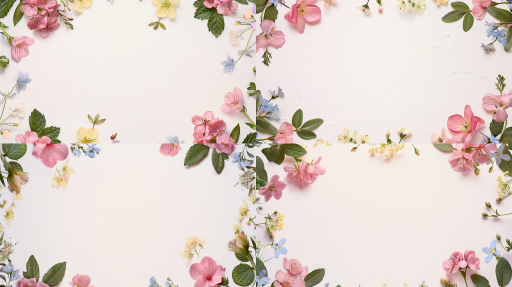
Unlocking the Potential of AI in Digital Creativity
As technology continues to advance at an exponential rate, artificial intelligence (AI) emerges not only as a powerful tool but also as a co-creator in the realm of digital creativity. From graphic design to music composition, AI's presence is becoming more pronounced, offering unique opportunities and challenges in the creative sector
The Impact of AI on the Creative Industry
AI is fundamentally altering how creative professionals approach their work. Designers can utilize AI algorithms that generate design options, significantly speeding up the creative workflow. Programs like Adobe Sensei use machine learning to suggest design features or layouts that complement an artist's style. Furthermore, AI can analyze vast amounts of data to identify design trends, helping artists make informed decisions.
In the realm of music, AI applications such as OpenAI’s MuseNet or Google’s Magenta are paving the way for new musical compositions. These tools can produce original compositions in various styles, allowing musicians to explore creative directions they may have never considered. Musicians can also collaborate with AI, using it not only as a composition tool but as a source of inspiration.
Potential Uses of AI in Creative Processes
AI can enhance creativity in several ways:
- Content Generation: AI technologies can help create content — from writing articles to generating graphics or illustrations. Natural Language Processing (NLP) enables AI to assist writers by suggesting phrases or even generating entire pieces based on prompts.
- Personalization: Businesses can leverage AI to tailor creative content specifically for individuals, such as personalized marketing campaigns or customized art pieces that resonate with a viewer’s preferences.
- Curation: AI can help in selecting and curating art or music collections, analyzing user preferences and behavior to recommend pieces that the audience would enjoy.
- Augmented Creativity: AI tools can act as brainstorming partners, sparking new ideas or exploring alternative approaches to existing concepts.
Ethics and Considerations in AI-Driven Creativity
However, the rise of AI in creative fields brings forth several ethical considerations. One significant concern revolves around intellectual property. As AI systems learn from existing works to create new content, questions arise regarding ownership. Who owns the copyrights to a piece created by an AI? Is it the programmer, the user, or does AI itself claim partial ownership?
Moreover, the potential for AI to replicate styles and techniques raises concerns about authenticity and originality. Will the use of AI dilute human creativity or elevate it by freeing artists from mundane tasks?
Another issue is the bias embedded in AI algorithms. If the data used to train AI reflects societal biases, the resultant creative outputs may also reflect these biases, potentially leading to a homogenized culture. Hence, ensuring diversity in training datasets is crucial.
Future Trends
The integration of AI into the creative process is only expected to grow stronger in the coming years. We can anticipate advancements in AI that allow for more nuanced understanding of emotional context, potentially enabling machines to create art that resonates on a deeper emotional level with audiences.
Furthermore, the rise of AI could see the emergence of new artistic roles — AI trainers and curators, for instance. These specialists would oversee how AI interacts with creative outputs and guide its application in novel ways. Educational institutions might adapt to incorporate AI literacy into their curricula, preparing the next generation of artists for a landscape where AI and human creativity coexist.
In conclusion, AI is not just a tool but a catalyst for transformation within the creative industry. Its potential to enhance human creativity is only overshadowed by the ethical considerations it brings to the forefront. As we navigate this intricate landscape, the dialogue surrounding these topics will shape the future of artistic expression and redefine what it means to create in the digital age.
![**ultra detailed 8k cinematic black and white beauty portrait of a young woman from chest up, vertical frame, face, hands and hair filling the composition, smooth neutral grey studio background with soft dark vignette on the edges, center of the frame is her eye, lips and finger in a "shh" gesture oval symmetrical face with soft but well defined features, ultra smooth flawless skin, no pores, no wrinkles, perfect beauty retouch, straight elegant nose with soft highlight along the bridge and gentle shadow under the tip full sensuous lips with a sharp cupid’s bow, slightly parted, a thin bright glossy highlight strip on the lower lip emphasizing volume, subtle light reflection on the lip gloss one eye visible through a gap between fingers, other eye mostly hidden by the upper hand, long thick eyelashes like fake lashes, small bright catchlight in the pupil, upper eyelid with smoky eye makeup, darker tone along lash line fading smoothly towards the brow, dark thick well shaped eyebrows, gently arched, not overdramatic dark wavy hair, big glossy waves falling down, one clear S-shaped wave on the right side of the frame, soft highlights along the strands to show texture, hair swept away from the cheeks so the face is not covered both hands in thin semi-transparent black gloves up to the forearm, upper hand placed horizontally across the upper face, back of the hand towards camera, fingers slightly spread so that one finger is above the brows and another lower finger creates a narrow gap that reveals the eye, fingertips long and tapered, sharp stiletto-like nails visible under the sheer fabric, subtle darker seams along the fingers and glove edges lower hand bent so that the index finger is vertical and gently touching the center of the lips in a classic "shhh" pose, [...]** - Image #3 <@1264899319799222315>](https://images.ai-img.art/thumbnails/150/4c03a422708b372b43caaee1e2929933c40f0a13dc069beeeb228a60b126223b.webp)
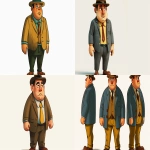
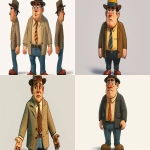
![**ultra detailed 8k cinematic black and white beauty portrait of a young woman from chest up, vertical frame, face, hands and hair filling the composition, smooth neutral grey studio background with soft dark vignette on the edges, center of the frame is her eye, lips and finger in a "shh" gesture oval symmetrical face with soft but well defined features, ultra smooth flawless skin, no pores, no wrinkles, perfect beauty retouch, straight elegant nose with soft highlight along the bridge and gentle shadow under the tip full sensuous lips with a sharp cupid’s bow, slightly parted, a thin bright glossy highlight strip on the lower lip emphasizing volume, subtle light reflection on the lip gloss one eye visible through a gap between fingers, other eye mostly hidden by the upper hand, long thick eyelashes like fake lashes, small bright catchlight in the pupil, upper eyelid with smoky eye makeup, darker tone along lash line fading smoothly towards the brow, dark thick well shaped eyebrows, gently arched, not overdramatic dark wavy hair, big glossy waves falling down, one clear S-shaped wave on the right side of the frame, soft highlights along the strands to show texture, hair swept away from the cheeks so the face is not covered both hands in thin semi-transparent black gloves up to the forearm, upper hand placed horizontally across the upper face, back of the hand towards camera, fingers slightly spread so that one finger is above the brows and another lower finger creates a narrow gap that reveals the eye, fingertips long and tapered, sharp stiletto-like nails visible under the sheer fabric, subtle darker seams along the fingers and glove edges lower hand bent so that the index finger is vertical and gently touching the center of the lips in a classic "shhh" pose, [...]** - Image #1 <@1264899319799222315>](https://images.ai-img.art/thumbnails/150/ff5a24c7c060f5350508823c406c28c9596aea4e37eefb60abc0f37504a37383.webp)
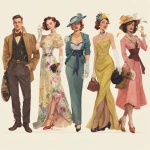
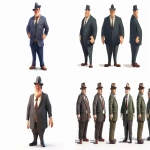
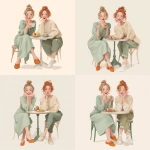
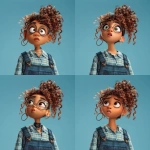
](https://images.ai-img.art/thumbnails/150/d08f607caf4a5c380defef68b778febb8911e8e51e51927b09ed67880bd3084b.webp)
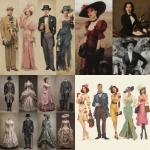
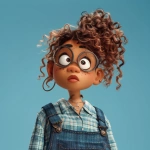
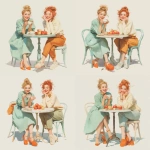
](https://images.ai-img.art/thumbnails/150/1871c145bfe0276c6e1bacf6ec0da6d2dae71370bf71674589af29a201acdd5f.webp)
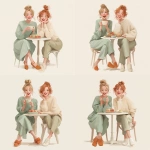
![**ultra detailed 8k cinematic black and white beauty portrait of a young woman from chest up, vertical frame, face, hands and hair filling the composition, smooth neutral grey studio background with soft dark vignette on the edges, center of the frame is her eye, lips and finger in a "shh" gesture oval symmetrical face with soft but well defined features, ultra smooth flawless skin, no pores, no wrinkles, perfect beauty retouch, straight elegant nose with soft highlight along the bridge and gentle shadow under the tip full sensuous lips with a sharp cupid’s bow, slightly parted, a thin bright glossy highlight strip on the lower lip emphasizing volume, subtle light reflection on the lip gloss one eye visible through a gap between fingers, other eye mostly hidden by the upper hand, long thick eyelashes like fake lashes, small bright catchlight in the pupil, upper eyelid with smoky eye makeup, darker tone along lash line fading smoothly towards the brow, dark thick well shaped eyebrows, gently arched, not overdramatic dark wavy hair, big glossy waves falling down, one clear S-shaped wave on the right side of the frame, soft highlights along the strands to show texture, hair swept away from the cheeks so the face is not covered both hands in thin semi-transparent black gloves up to the forearm, upper hand placed horizontally across the upper face, back of the hand towards camera, fingers slightly spread so that one finger is above the brows and another lower finger creates a narrow gap that reveals the eye, fingertips long and tapered, sharp stiletto-like nails visible under the sheer fabric, subtle darker seams along the fingers and glove edges lower hand bent so that the index finger is vertical and gently touching the center of the lips in a classic "shhh" pose, [...]** - Image #2 <@1264899319799222315>](https://images.ai-img.art/thumbnails/150/d87499f6bdc5a4a822aea4674654f70073b052542a1aaa1d08461a13ca2e07f9.webp)

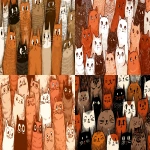

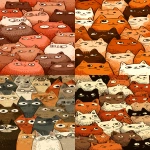
](https://images.ai-img.art/thumbnails/150/e07ad2e7379a835127482b0fd3176192c001c90e68a85b4315cf482b6a3f5ea5.webp)
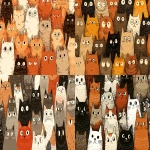
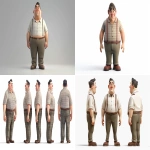
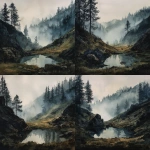
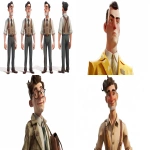
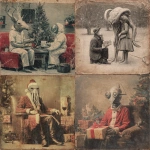
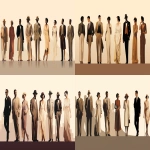
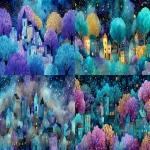
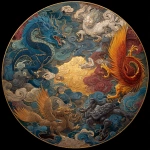
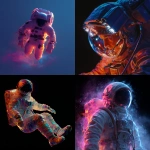
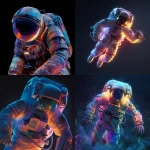
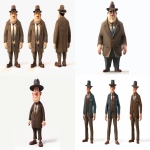
](https://images.ai-img.art/thumbnails/150/4f3d83c4b1d979b5be00f4ea80d67b71c0335bc1163e692d738e553ac37709e5.webp)
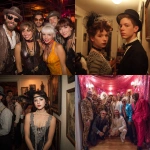
](https://images.ai-img.art/thumbnails/150/7c4350a99935771fe343a7ae65c780cf4cd6b861e69cdc32bd58a3a92fb2476f.webp)
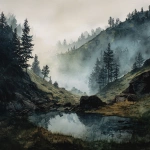
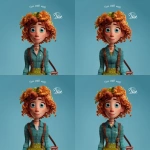

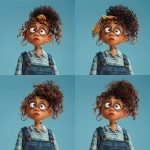
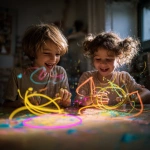
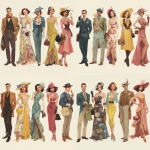
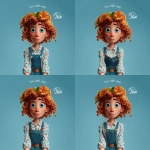
](https://images.ai-img.art/thumbnails/150/5487dcbcab0cd5702a67cc6819342ef56c05d0fc7730bfb7718ee291f10c3da3.webp)
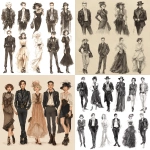
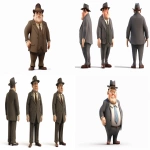
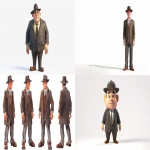
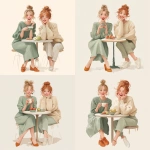
](https://images.ai-img.art/thumbnails/150/f3411154f4c743a26f102ecfc985f3f6214e93b285748fac66c88f3b52f85b26.webp)
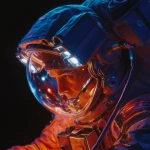
![**ultra detailed 8k cinematic black and white beauty portrait of a young woman from chest up, vertical frame, face, hands and hair filling the composition, smooth neutral grey studio background with soft dark vignette on the edges, center of the frame is her eye, lips and finger in a "shh" gesture oval symmetrical face with soft but well defined features, ultra smooth flawless skin, no pores, no wrinkles, perfect beauty retouch, straight elegant nose with soft highlight along the bridge and gentle shadow under the tip full sensuous lips with a sharp cupid’s bow, slightly parted, a thin bright glossy highlight strip on the lower lip emphasizing volume, subtle light reflection on the lip gloss one eye visible through a gap between fingers, other eye mostly hidden by the upper hand, long thick eyelashes like fake lashes, small bright catchlight in the pupil, upper eyelid with smoky eye makeup, darker tone along lash line fading smoothly towards the brow, dark thick well shaped eyebrows, gently arched, not overdramatic dark wavy hair, big glossy waves falling down, one clear S-shaped wave on the right side of the frame, soft highlights along the strands to show texture, hair swept away from the cheeks so the face is not covered both hands in thin semi-transparent black gloves up to the forearm, upper hand placed horizontally across the upper face, back of the hand towards camera, fingers slightly spread so that one finger is above the brows and another lower finger creates a narrow gap that reveals the eye, fingertips long and tapered, sharp stiletto-like nails visible under the sheer fabric, subtle darker seams along the fingers and glove edges lower hand bent so that the index finger is vertical and gently touching the center of the lips in a classic "shhh" pose, [...]** - Image #4 <@1264899319799222315>](https://images.ai-img.art/thumbnails/150/8507c113aa12343ebd50af4ab9c637a6cf1acf21c55772271eb6a66bb04fa39c.webp)
